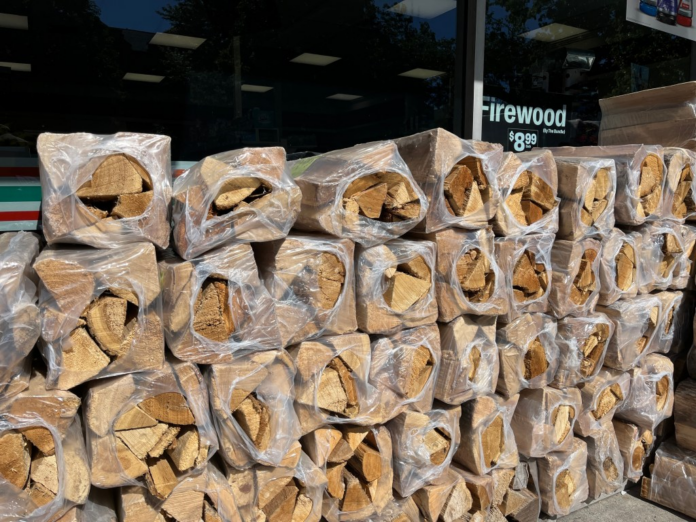When your camping trip comes to an end and you have some firewood left over, you may be tempted to bring it home to use in the fireplace or a backyard fire pit.
“Please don’t,” said Spencer Campbell, manager of the Plant Clinic at The Morton Arboretum in Lisle. “Leave the firewood where you got it, so that you don’t give destructive tree pests a ride into your neighborhood.”
Firewood carried from one location to another is a major way that new insects and diseases are spread. Insect eggs and larvae or disease-causing fungus spores and bacteria can lurk in the nooks and crannies of a log. When you carry logs from one place to another, you bring them all along.
That’s how the hugely destructive emerald ash borer is believed to have spread across two-thirds of the United States, to kill tens of millions of ash trees. The eggs and larvae rode along the interstate highway system in firewood.
The danger to trees from firewood that is transported is so great that a coalition of agencies, including the U.S. Department of Agriculture, have a national public service campaign to convey the warning. The website at dontmovefirewood.org can advise on where to find firewood and on rules and regulations in your area.
Insects, larvae, eggs and disease-causing microorganisms are hard to spot or invisible, so you can’t tell by looking whether any log contains a problem. It’s safest to assume that every log is infested, and never move any firewood.
“Just one infested log could be enough to introduce a devastating pest to a whole new area of trees,” Campbell said.
Before you leave a campsite, burn all your firewood, or leave it behind. Don’t pack up extra logs and take them home. If you’re touring multiple sites, perhaps in an RV, burn all firewood at each stop, and buy a new batch of local wood at the next campground.
When you buy packages of firewood at convenience stores or other outlets, check the labeling to ensure it was cut locally.
“Use the firewood up at your campsite, or leave it as a gift for the next camper,” Campbell said. “And when you go camping, don’t bring firewood from home. Buy it where you camp.”
Not moving firewood is the single most powerful thing that homeowners can do to fight the expansion of pests and diseases that can destroy trees. “Enjoy your campfire, but do it responsibly,” Campbell said.
For tree and plant advice, contact the Plant Clinic at The Morton Arboretum (630-719-2424, mortonarb.org/plant-clinic, or plantclinic@mortonarb.org). Beth Botts is a staff writer at the Arboretum.




